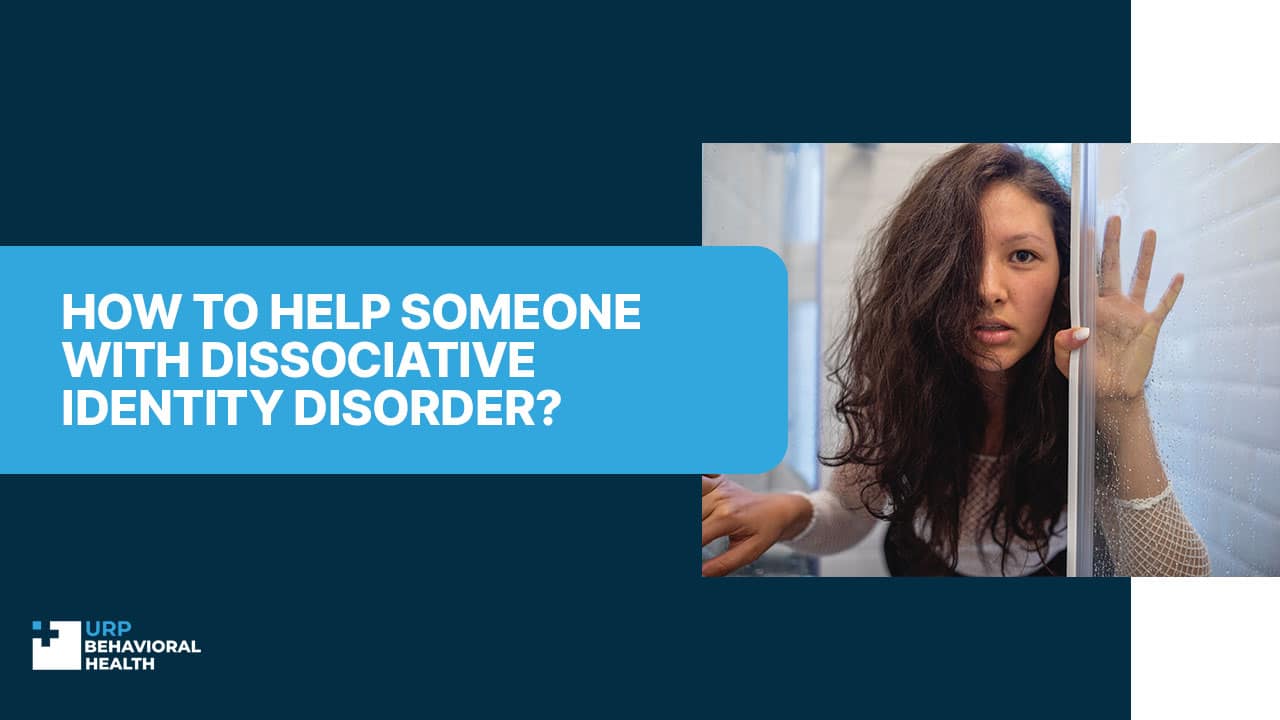
How To Help Someone With Dissociative Identity Disorder?
Dating someone with multiple personality disorder is quite a rare situation as only 1% of the whole population tends to have DID [1]. Yet, if you are a lucky guy and your partner shows the symptoms of dissociative identity disorder, or they are already diagnosed with it, is it a dead end for your relationship? Of course, it is not. Still, you should be ready for multiple challenges and it is better to learn in advance how to cope with them. That’s what we focus on in this article.
Dating Someone With Dissociative Identity Disorder: Which Challenges to Expect?
A split personality disorder also known as DID impacts the whole life of a person and their surroundings. It is a life-long mental health issue which typically manifests in adolescence but its primary symptoms may onset at an early age. DID is difficult to diagnose because some of its symptoms intersect with other issues i.e., schizophrenia, dissociative amnesia, daydreaming, and other specified dissociative disorders.
Discovering the Main Symptoms of DID in Your Partner
Dissociative identity disorder has a core feature which makes it unique. It is a mosaic identity it creates in a person. This happens typically due to heavy traumas experienced in early childhood (recurring sexual or physical abuse, emotional abuse and neglect, some crime-induced traumas, or even a severe accident). As a result, a child tries to manage their traumatic experience and escapes from reality to another, imagined identity. For example, in real life, your partner is a 37 YO white female with a PhD. While her other identity (so-called alter) is a gender-neutral person of 17 YO with a college degree in physics and elaborate sexual behavior. That’s just the tip of the iceberg as the number of alters in DID-diagnosed people can be unlimited, and they are not always humans.
Each identity in a DID-diagnosed person has their own tastes, views, memories, and experiences. They often even have various tones of voices and accents, or they can speak even different languages [2].
The shift of personalities in a person is called a dissociative episode, and it can fear a partner of such a person greatly. Yet, identity shifts are not the only symptom of DID.
Don’t wait - confidential help is available right now for you or your loved one.
There are some more of them to introduce you to the whole picture of this mental health issue.
- Memory issues and episodes of amnesia are typical for DID. Your partner may be forgetful and even cannot remember what you did yesterday. Their memories are often controversial, and you may hear multiple versions of them even from a single identity. DID-diagnosed persons often forget personal information, dates, and their residence places.
- Regular headaches are also common in DID. The reason is because the manifestation of the disorder is related to neural changes. In DID-diagnosed persons, limbic temporal areas and frontal areas are working in quite different ways than in norm-typical people.
- Mood swings and changes in preferences are characteristic of DID too. They are unpredictable and may affect almost every life area from eating habits to philosophic views, political views, beliefs, and overall lifestyle.
- Besides, eating disorders and substance abuse are also common for this disorder.
- At last, episodes of self-punishment, self-persecution and suicidal patterns are also quite regular in DID patients.
The whole picture may seem disastrous, yet, lots of DID-diagnosed people live quite normal lives, and their dissociative episodes occur rarely. Besides, women are more sensitive to DID than men [3].
Which Challenges and Core Features of DID May Impact Your Relationships?
In terms of relationships, dating a DID-diagnosed person provides you with a couple of significant challenges you shouldn’t neglect.
- Uncertainty is the first and foremost. You fell in love with the main identity and you are not ready that the other day you meet a fully different person. It can be hard to comprehend and deal with it.
- Issues of violence or self-harm can spoil even the deepest love. In DID, women tend more to provide self-harming behavior, while men often show episodes of violence directed at the outer environment. This means they can be directed at you too.
- DID-diagnosed people often experience trance and amnesia episodes and this makes interaction with them difficult.
- Often, DID brings depressive symptoms and anxiety. In this case, your partner may be truly intolerable.
How to Help Someone With Dissociative Disorder?
However, don’t be sad about the perspectives of dating someone who has dissociative identity disorder. They still can be reliable partners and they truly deserve your love. The only thing is, you should learn how to help someone with multiple personality disorder. This help is a two-way strategy because it is targeted to guarantee your safety and peace of mind as well as help a partner to maintain a normal life.
Learn More About Dissociative Disorders to Be Forewarned
The first thing you should do is to provide self-education to learn as much about DID as you can. When you are informed, you are forewarned. You may better understand what happens to your partner when you learn about their diagnosis. There are enough educational sources dedicated to DID. For example, you can start with the article on WebMD [4] which describes in simple words the essence of dissociative disorders.
Reach out today and let us create a treatment plan designed around your needs.
Social Support and Care Is What You Can Offer to DID-Diagnosed Partner
DID-diagnosed people often are isolated from social life. They are ashamed of their alters ‘switching’ and they often are claimed nerds. They tend to avoid close relationships because of memory lacunas and switches in their preferences. Yet, they also feel lonely because of that. Besides, isolation is a factor that worsens mental health issues. That’s why your social care may be helpful. What does it mean?
- Speak with your partner about their needs and your needs.
- Develop healthy boundaries.
- Help them integrate into society and share your time with them in a way which is comfortable for both of you.
Be Attentive to Their Present State
It is crucially important for a DID-diagnosed person’s partner to track their present state. If you notice that a dissociative episode is coming and the severity of accompanying symptoms is growing, it is better to offer your partner help. For example, you can offer them to appoint a visit to a treatment center to get timely therapy.
Understand the Triggers to Cope With Them
Dissociative identity disorder’s manifestations depend on some triggers. These can be seasons or some dates related to previous trauma, smells or colors, some persons reminding about traumatic experiences, and some triggering phrases or sounds. It could be almost everything but it’s quite real to distinguish them and keep track of them.
Encourage Self-Help Strategies
Mental health issues often depend on self-help. These strategies are intended to help a person keep afloat at the moment they suffer from dissociative episodes. For DID, these strategies may include:
- Mindfulness practices
- Grounding practices
- Memory tools development to help recall the memories lost
- Connection with you and society – it can be a psychotherapeutic group for DID patients or just a hobby group on holidays but such a connection is a cue to stability.
Help Them Apply for Professional Help
Dissociative identity disorder is not a mental state which can be compensated only by a caring environment.
Professional help is a must for such patients. There are no one-fits-all treatments for DID as each case of this disorder’s manifestation is unique. Yet, there are professional methods with proven effectiveness which can help DID patients.
- Psychotherapy is the #1 choice for DID-diagnosed people. The two main methods applied for this disorder are cognitive behavioral therapy (CBT) and dialectical behavioral therapy (DBT).
- Hypnosis is often prescribed to DID patients to help them restore suppressed memories.
- EMDR therapy which focuses on certain eye movements while processing traumatic memories is also a good choice.
- Art therapy is often used for supportive effects to help DID patients focus on their emotions and senses here and now.
Being in love with a person with dissociative identity disorder is riding a roller coaster. Yet, everyone deserves love and devotion, and DID-diagnosed people need them even more than norm-typical ones. It’s up to you to follow our guide to make your relationship with a partner having a dissociative state happy and stable. Simply keep in mind that your self-education about DID, persistent checks of the current state of a partner, and timely application for professional help are clue strategies to keep your love boat afloat.
Our team will verify your insurance and design a plan tailored to your needs.
If the first two strategies are on your behalf, URP Behavioral Health rehab center can help you with the last one. Our team supports people with a diverse range of mental health issues including DID and OSID. With the help of professional psychotherapists, therapists, and caregivers, your loved DID-diagnosed partner will have an individual treatment plan developed to reduce the length and intensity of dissociative episodes. We focus on supporting the main personality and providing relevant therapy for the mitigation of accompanying signs and symptoms. The result is more than your comfort. It is your happy relationship with a person who acts normally and whose well-being is under the thorough control of mental health specialists.
Resources:
- https://pmc.ncbi.nlm.nih.gov/articles/PMC9805736/#:~:text=However%2C%20DID%20is%20found%20in%201%25%20of%20the%20general%20population.&text=DID%20has%20an%20estimated%20lifetime%20prevalence%20of%20around%201.5%25.
- https://traumadissociation.com/alters
- https://www.nami.org/about-mental-illness/mental-health-conditions/dissociative-disorders/#:~:text=Up%20to%2075%25%20of%20people,diagnosed%20with%20a%20dissociative%20disorder.
- https://www.webmd.com/mental-health/dissociative-identity-disorder-multiple-personality-disorder
















